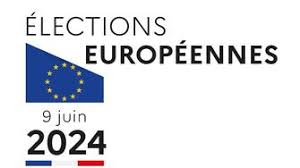The 2024 European Union elections are fast approaching, marking a pivotal moment for the future of the EU. From June 6 to 9, 2024, citizens from the 27 member states will elect the 705 Members of the European Parliament (MEPs) who will represent them. These elections are particularly significant this year, amid economic, social, and environmental challenges, and rising geopolitical tensions. Here’s a detailed overview of the election’s key issues, main candidates, and France’s position in this political landscape.

Key Issues of the 2024 European Elections
The 2024 European elections are set against a backdrop of several major challenges for the EU:
- Climate Crisis: Combating climate change remains a top priority. The EU aims for carbon neutrality by 2050, and debates on energy and environmental policies will be central to the electoral discussions.
- Economy and Inflation: The post-pandemic economic recovery is still fragile, with many European countries facing high inflation rates. Economic policies to stabilize and stimulate the European economy will be a key focus in party platforms.
- Migration and Security: Managing migration flows and internal security issues continue to be sensitive topics, influencing both voters and political parties.
- Technological Sovereignty and Global Competition: Europe seeks to strengthen its technological sovereignty in the face of American and Chinese giants. Policies on digital innovation will also be crucial.
Main Candidates and Political Groups
The 2024 European elections will feature several influential political groups and candidates:
- European People’s Party (EPP): Currently the largest group in the European Parliament, the EPP advocates for a strong, integrated Europe with moderate, pro-business policies. Their main candidates aim to continue a path of stability and growth.
- Progressive Alliance of Socialists and Democrats (S&D): The second largest group, S&D focuses on social policies, fighting inequality, and a just ecological transition.
- Renew Europe: This centrist and liberal group promotes a dynamic Europe, emphasizing innovation, the single market, and individual freedoms.
- Greens/European Free Alliance (Greens/EFA): Growing in several European countries, the Greens push for ambitious environmental policies and a radical shift towards a sustainable economy.
- Identity and Democracy (ID): Consisting mainly of far-right and Eurosceptic parties, this group advocates for reducing the EU’s powers and increasing national sovereignty.
France’s Position
In France, the 2024 European elections are set to be particularly contested, with several political forces vying for influence:
- La République En Marche (LREM): President Emmanuel Macron’s party, allied with Renew Europe, will seek to consolidate its pro-European, reformist positions. Macron is likely to emphasize a more sovereign Europe, especially in defense and technology.
- Rassemblement National (RN): Marine Le Pen’s party, part of the Identity and Democracy group, will aim to capitalize on public discontent with the EU, promoting nationalist and Eurosceptic policies.
- Les Républicains (LR): Belonging to the EPP, the Republicans will advocate for a Europe of nations, with more conservative policies focused on security and the economy.
- La France Insoumise (LFI): This far-left party, allied with the Greens/EFA, will emphasize a radical ecological transformation and fighting social and economic inequalities.
- Europe Écologie Les Verts (EELV): The French Greens will continue to push for ambitious environmental policies and a rapid energy transition.
Conclusion
The 2024 European elections will be decisive for the future of the EU and France’s role within it. With such varied and crucial issues at stake, every vote will matter in shaping the policies and priorities of Europe in the coming years. French citizens, like those in other member states, will have the opportunity to choose the MEPs who will represent their interests in the European Parliament, thereby influencing the direction the EU will take in addressing global and regional challenges.
As we await the results, it is crucial for voters to stay informed and actively participate in this democratic process, which will determine not only the future of the EU but also that of each member country, including France.


